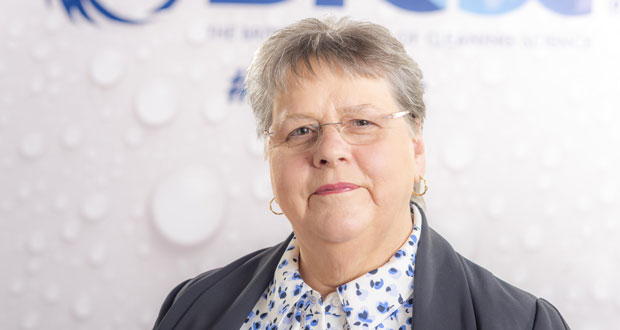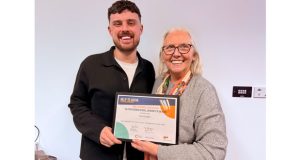Experts from the British Institute of Cleaning Science (BICSc) and the Cleaning and Support Services Association (CSSA) have joined forces to work in partnership on an innovative pioneering project – The Future of Cleaning initiative.
An industry first, this ground-breaking collaboration between the two organisations has been launched in partnership with the University of Surrey and is aimed at exploring innovation in the cleaning industry.
The study will be at the forefront of an exciting new era in the industry and will look at the impact that machinery, IoT sensors, robotics, and data collectors can have on the actual process of cleaning.
BICSc Group Managing Director, Neil Spencer-Cook, said: “The revolutionary research will explore the benefits of using automation in terms of productivity, cleanliness and hygiene. We want to understand what differences in training needs will be required when introducing these technologies to the cleaning community. Denise Hanson, BICSc Commercial Director, who is an expert in technical cleaning, and Dr Andrew Kemp, alongside the BICSc Scientific Advisory Board, will be heavily involved in the ongoing research project.”
Several companies operating within the professional cleaning industry are involved with the pioneering project, supplying the equipment and latest technologies that will be utilised as part of the study.
An inaugural meeting was held in January to launch the trial, which is the brainchild of Chair of BICSc Soo Bartholomew. Over the coming months, various trials will take place on the university campus, which was selected because the majority of its current cleaning processes are conducted manually. The study will also establish a better understanding of the training needs for effective technology deployment and its influence on best practices.
Spencer-Cook explained: “This is an industry first, a ground-breaking collaboration on the future of cleaning. It will be fascinating to see the results as within the industry there are so many differing opinions on the effectiveness of robotics, which I see as a good thing. This study will hopefully prove the value robotics and technology can have within the cleaning community.
“The cleaning industry is slow in its take up of technology and this study will hopefully help shine a spotlight on the benefits that technology can bring to the industry. This is the first study of its kind bringing together our industry leading organisations and the aim ultimately is to prove that technology and robotics can make the cleaning industry more efficient and as effective, if not more, than it currently is.”
Paul Ashton, CSSA Chairman, said: “The CSSA is passionate about the future of cleaning. Our objective is to understand how the latest technology and innovation, such as IoT sensors and robotics are impacting on cleaning regimes in real terms. We intend to answer key questions including: what are realistic productivity gains when using automation and how does the tech impact on best practice guidelines?
“Robust testing will be conducted under the guidance of Dr Andrew Kemp, Head of BICSc Scientific Advisory Board, so we can be reassured that there will be validated data collected to drive tangible outcomes. This is a real milestone for our industry as we see two leading forces in our industry collaborate to create genuine impact in an area that is gaining more and more focus.”
It is hoped that the study, which will be conducted over several months and conducted in collaboration with Ellis Foy and the team at the university campus, will also help to debunk some myths.
Spencer-Cook added: “This is an exciting new development for our industry and BICSc is delighted to be collaborating with the CSSA. We hope this comprehensive, collaborative study will also tackle the common misconception that introducing robotics leads to the loss of jobs. Whereas technology can mean instead of a person manually mopping a vast floor space, which a machine can manage, the cleaning operative can do the more detailed work. We look forward to sharing the insights from the study and revealing the results.”
Supply partners supporting the project include Birkin Group, Infogrid, SoftBank Robotics UK Ltd., ICE, Kärcher UK, Numatic International, Killis Robotics, TASKI – The Ultimate Cleaning Machines, Orion Eco Solutions, Safer Space Limited.
BICSc is the largest independent, professional and educational body within the cleaning industry and recently launched its free course focused on Robotics and the cleaning industry. For more information go to https://bbs-virtual-training.thinkific.com/courses/Robotics





